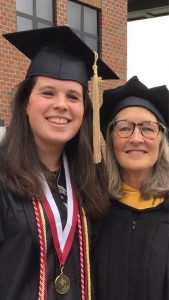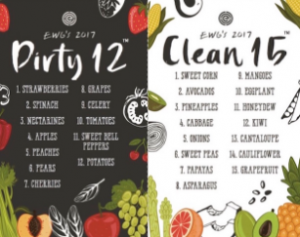Top 10 Tips for Buying Organic on a Budget
 If it is your first time shopping for organic items, free from toxic synthetic chemicals, you are starting on a road that will help reduce your chances of developing breast cancer and many other diseases. Sometimes those first few shopping trips can be scary, especially when you are on a tight budget, BUT there are ways to navigate through the sea of organic options while keeping a close watch on your spending.
If it is your first time shopping for organic items, free from toxic synthetic chemicals, you are starting on a road that will help reduce your chances of developing breast cancer and many other diseases. Sometimes those first few shopping trips can be scary, especially when you are on a tight budget, BUT there are ways to navigate through the sea of organic options while keeping a close watch on your spending.
My friends are always asking me how I am able to eat and live an organic lifestyle. I have a simple answer: it’s my priority. I would rather invest in my body now then paying medical expenses while I am older because I have clogged up my engine with bad fuel. I will be the first to admit that I am privileged to have the accessibility and opportunity to eat the way I do, but it hasn’t always been easy. Like everyone else, I am a college student living on a tight budget.
So, here are some of my tips for affording organic items:
- Buy in season! (Especially true for the northern US)
Many foods become cheaper when they are in season. There is a higher amount available and they most likely are not traveling as far so the prices may be lower. You can also take advantage of this during the “in season” time by buying extra to freeze or can (in glass) for out of season times. Not to mention that in season produce has absolutely incredible flavor!
- Try To Find A Local, Organic CSA
A CSA, Community Supported Agriculture, is when you invest the upfront cost for an agreed upon length in weeks and/or approximate weight in vegetables per week that you will receive throughout the CSA season from your local most-often organic farmer (be sure to ask about their growing practices before buying). Paying the costs of the CSA upfront allows the farmers to afford to operate during the season. Last summer, even with a severe drought in New England, my roommate and I were very pleased with our CSA and found that the price per pound was better than retail prices for organic produce!
- Shop Around
This can be one of the most frustrating parts. You will find that certain stores have better prices for some items than other stores, but not necessarily on all organic products. So shop around and stock up when you find great prices. This can be difficult as it forces you to be more cognizant and paying attention while you shop but can and will save you money in the long run.
- Dirty Dozen, Clean Fifteen

We always recommend buying organic because it is the safer option, however if you must chose, there is guidance available. Every year the EWG releases what they call the Dirty Dozen and Clean Fifteen lists. Dirty Dozen fruits and vegetables are ones you ALWAYS want to buy organic, no exceptions. Clean Fifteen fruits and vegetables are ones you could get away with not always buying organic if your budget is tight that week.
- Embrace The Crazy Couponer, Be The Crazy Couponer
Some organic foods are just plain expensive and maybe won’t be in your basket every week, so treasure coupons. You may not need to go to the extent of the crazy couponers but take them as inspiration. Collect coupons and look for sale items to enjoy the wide variety of organic products out there. (I keep a separate compartment of my bag dedicated to coupons!)
- Find What I Call “Gold Star Stores”
I can’t promise these will be everywhere but what I call gold star stores are something I find so exciting (they deserve a gold star sticker for their awesomeness). One of the largest contributors to climate change is the massive amounts of wasted food going into landfills and creating methane (a greenhouse gas that is a stronger insulator than carbon). We are overproducing our need in terms of food but people are still hungry? I could go on for while on that topic but one way some stores have tried to combat food waste is selling the unsellable. They sell items that may be close to date or were in boxes that were damaged but the contents are still fine and typically sell at a much lower price. Ask around and see if there are any near you to enjoy not only eating organic foods but helping combat climate change by not letting perfectly good food fall into landfills.
- DIY – Dig it!
What’s more fun than growing some of your own foods? Decorative and functional, there are many ways to easily grow vegetables like tomatoes, peppers, and greens indoors to be at your disposal and help offset some of the costs of buying organic veggies. When planting, be sure to use organic seeds, soil, and fertilizer (or try using compost from your own food scraps)!
- Be Inventive With Recipes
Being creative is very important when trying to stretch a budget to fit organic foods. Meats can be particularly expensive but you can get a little more bang for your buck from your beef, for example, by adding black beans, quinoa, or mushrooms. Or try making a couple more vegetarian meals a week to avoid the cost of meats all together (and lower your carbon footprint). There are many ways to stretch meals that can be easy and delicious so put on your chef’s hat and see what you can come up with!
- Buy What You Need
Plan out what you’ll be eating for the week ahead of time. It doesn’t even have to be an exact menu (because who know exactly what you’ll want at 2 am when you sneak over to the fridge or snack cabinet) but having a general idea and plan for the amount of food you will consume in a week will help you refrain from overbuying. [Bonus tip: Don’t go to the grocery store hungry. You’ll definitely be more inclined to impulse buys while on an empty stomach.]
- Don’t Be Wasteful
If you purchase lots of organic deliciousness but then eat out every night, chances are food will be wasted. In addition to planning what to buy, plan what and where to eat. If you know you will go out a couple nights during your week, reduce your purchases and minimize the possibility of throwing out food. This means more money saved and food not going to landfill or the compost pile. If something isn’t edible in the way you intended, try and find another use. Before I go to the store to pick up more food I make what I call a “fridge clearer meal,” and it is exactly as it sounds. I take out all the vegetables that may go bad, throw them in a pot, add some spices (maybe a little vinegar) and serve it over organic quinoa or rice! Also, my fridge loves freezing cucumbers and from my fridge’s mischievous nature, I’ve learned how lovely cooked cucumbers are, go figure!
Adopting an organic lifestyle does not always mean that you will just be replacing your current items with more expensive versions. It also means you will be cutting out a lot of costs too. I’ve balanced my budget by avoiding the purchases of super toxic items like nail polish and buying new makeup rationally. For cleaning supplies, I have my favorite 18 and 1 soap, baking soda, and vinegar, freeing up not only storage space but also room in my wallet because I am not buying 10 different cleaning products for my body, kitchen, bathroom, pets, and laundry. Simply avoiding products that are notoriously full of toxins can also lighten up your purchases.
Typically, organic is going to be more expensive because it is showing close to what the true cost of food is. Being a chicken farmer’s daughter, I become so irate in the store when I see chicken on sale for $.99 a pound. What margin is left for the farmer? The feed? The distributor? The grocery store? What corners had to be cut to make a chicken that cheap? What toxins might have been pumped into that bird to make it grow at an unmentionable rate? I’ve gotten in the habit of, when I see really cheap food, questioning, wondering, and researching why is it THAT CHEAP. If you’re at the point of wanting to buy organic because it is better for you, or the planet, or any other reason, it is time to awaken the child-like curiosity of being a conscious consumer and searching for the best food that you can.
At this point, it is sometimes hard to believe where I came from in terms of the food and products I put into and on my body, respectively. When I started my organic journey, there were hardly any options available in my local supermarkets. I would drive nearly an hour to get good, organic foods. Three years later, due to the work of the organic movement, I will be the first to admit that I am the food obsessed weirdo who cries in the middle of the grocery store because it brings me so much joy, but also hope, to see how many organic options there are within my community to choose from today. Thanks to the efforts of many individuals, we no longer need to be solely subjected to chemical-ridden food and products.
This is my final blog as a Protect Our Breasts National Executive Board Member. Throughout the past year and a half on this board, to put it simply, I have learned A LOT. Between my fun trick of listing off scary sounding chemicals at will, to seeing the passion and drive so many people have in creating a less toxic world for our future, I have learned that although the odds may seem against us as we fight giants polluting our bodies, we have the ability to make differences. Although they may seem small, collectively we can create a change in our marketplace if we demand it. I encourage you all to expand and drive the organic movement further by voting with your dollars to say that this is the kind of food and world, one which is free of synthetic chemicals, that we want for our future.

